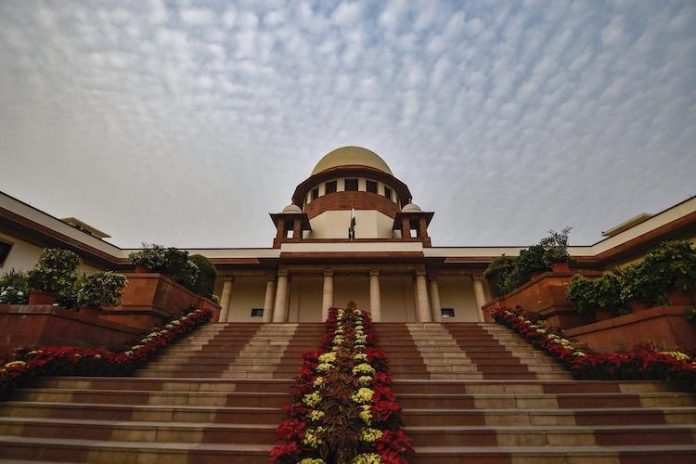This article is written by Harshit Bhimrajka currently pursuing B.A.LLB (Hons) from NLU, Patiala.
Table of Contents
Introduction
The Haryana Judicial Services Exam is officially called the HCS Judicial Branch Examination or also referred to as the Haryana Civil Judge Junior Division Exam. This competitive exam is held by the Haryana High Court for recruitment for the Civil Judge Junior Division or Judicial Magistrate posts in the cadre of Haryana Civil Service Judicial Branch). The notification is normally published on the High Court’s official website at highcourtchd gov.in and/or the website of the Haryana Public Service Commission – BTSC
Eligibility and age limit: Haryana Civil Judge junior division/Judicial Magistrate
Education academic qualification
The candidate must have completed a Bachelor of Laws degree (LLB) from Government & BCI approved University in India or must be an Advocate enrolled under the provisions of the Advocate Act, 1961 entitled to practice in the High Court Or Courts subordinate thereto.
Age limit
Must have completed the age of 22 years (Minimum) and must not have completed the age of 35 years (Maximum) as on the specific date mentioned in the official advertisement of the year.
There are various age relaxation terms and conditions for reserved and special category applicants Refer to the official advertisement of the year for details.
Overall scheme of Haryana Civil Service Judicial branch competitive exam
The examination will be conducted in three distinct stages:
- Preliminary Exam – Objective Questions / MCQ based
- Main Exam Written Descriptive/Narrative type
- Viva Voce – Personal Interview
Syllabus for Haryana Civil Judge junior division preliminary exam
The preliminary examination will be of objective type with multiple-choice questions. The question paper for the Judicial Branch) The preliminary Examination will be for two hours. There will be 125 questions and each question will carry 4 marks, with negative marking- for every wrong answer 80 marks will be deducted. There will, however, be no negative marking in respect of un-attempted (unanswered) questions. The objective type multiple choice questions for the Preliminary Examination will be from the same syllabus as indicated for the Main Examination.
The candidate will be expected to have a general and basic overview of the main subjects and also the ability to answer questions on current events of national and international importance, Indian legal and constitutional history, and governance. The candidate may also be tested for his analytical skills and aptitude.
The standard of the question paper will be of Law graduate level Le the standard LLB syllabus that is prescribed in Bci Approved law colleges across India. Any General analytical or aptitude questions will of a level that can be answered by a well-informed person at a graduate level. The objective of the Preliminary Examination is to shortlist candidates for the Main Examination.
To be shortlisted for the main exam, a candidate has to secure a minimum of 150 marks (100 marks for all reserved category candidates) out of the total 500 marks in the Preliminary Examination (e. The minimum eligibility marks will be on for oral category and 20% for the reserved category students). Note: Candidates who qualify will have to fill in the application form for the mains exam separately.
Syllabus for Haryana Civil Judge (Junior Division) Main Exam
The Main Exam will consist of five written papers with descriptive or narrative essay type questions. Each written paper will be of three hours duration. The standard of the language paper will be that of the Matriculation Examination of the Board of School Education, Haryana. The syllabus for each paper is as below
PAPER-1 – CIVIL LAW-1- 200 MARKS
- Code of Civil procedure (also touched upon the Limitation act.
- Punjab Courts Act. (As applicable to Haryana)
- Indian Contract Act.
- Indian partnership Act
- Sale of Goods Act.
- Specific Relief Act
- Indian Evidence Act, and Haryana Urban (control of rent and eviction) Act 1973
PAPER-II – CIVIL LAW-11-200 MARKS
- Hindu Marriage. Adoption. Inheritance & other personal family laws
- Mohammedan Law and Customary Law, (Marriage: Adoption, Inheritance & other personal, family laws)
- Law of Registration and Limitation
PAPER-III – CRIMINAL LAW – 200 MARKS
- Indian Penal Code, (IPC)
- Criminal Procedure Code (CrPC)
- Indian Evidence Act,
PAPER-IV ENGLISH – 200 MARKS
- English Essay on a given topic 10001100 words) – 100 marks
- Precis Writing 25 marks
- Words and Phrases (Making sentences with the given words and Phrases)- 25 marks
- Comprehension 25 marks
- Corrections (Language Sentence. Spelling corrections)- 24 marks
PAPER-V – LANGUAGE – HINDI (IN DEVNAGRI SCRIPT) 100 MARKS
- Translation of an English passage into Hindi 20 Marks
- Explanation of Hindi passage in prose and poetry in the same language : 30 Marks
- Composition (essay) idioms and corrections: 50 Marks
Note:
- Main Examination will be subjective/narrative type
- The Main Examination will be conducted in English Medium except for the language paper
- Copy of Bare Acts of legislative enactments may be supplied (Candidates cannot call any material into the exam hall).
No candidate will be called for the viva voce unless he obtains at least fifty percent quality marks in the aggregate of all the written papers However, for the candidate belonging to the Scheduled Castes/Scheduled Tribes, Backward Classes, Physically Handicapped and Ex-Serviceman candidates only (but not dependents of ESM) the qualifying marks for this purpose will be 45%
Haryana Civil Service (Judicial Branch) viva-voce personal interview: 200 marks
The purpose of the personal interview /viva voce is to judge the personal qualities of the candidates. The viva-voce will relate to the matters of general interest and intended to test the candidate’s alertness, intelligence and general outlook. it will be conducted in English
The appearance in viva-voce is mandatory to be considered for the final selection
Candidates will be eligible to be recruited as Civil Judges/Judicial Magistrates if they secure 50% or more marks (read 45% for the scheduled Castes Scheduled Tribes Backward Classes, Physically Handicapped and Ex-Serviceman candidates only, but not dependents of ESM) in aggregate of the marks secured in the main written examination and the viva voce.
Interview
Some of the questions that were asked by the students who cleared the JCS exam are as follows:
Q1. HOW DID YOU STRATEGIZE YOUR PREPARATION FOR THE PRELIMINARY AND MAINS EXAMINATION OF HCS/PCS JUDICIAL SERVICES
A1. For the preliminary exam, I solved the book of Singhal’s for past year question papers for all subjects. I would like to emphasize that preliminary exams of the judiciary are important as they are the first filter for judicial service aspirants by the commission. In my case, the Haryana Judiciary prelims exam was about to be conducted in a very short time after my graduation, so I had to make sure that my preparation time was utilized to the last second.
The other thing which I think defined my preparation was persistence and order. I made my own precise notes of bare acts, case laws, amendments and then further streamlined them in just 5 pages for each subject. I revised them multiple times (not less than 4), and that helped me immensely in revising the vast law syllabus in a very short duration.
While the memorization and revision strategy was adequate for law subjects, I made sure that I gave 2 hours each to the language section of both Punjab judicial services and Haryana judicial services before their mains exams daily without fail. Language papers are very crucial in determining the final marks and overall selection of a candidate and must be given due importance in time schedule. Lastly, I joined a local coaching institute which provided me a test series to evaluate my knowledge and weed out mistakes.
Q2. CAN YOU SHARE THE LIST OF BOOKS AND OTHER MATERIALS THAT YOU WENT THROUGH WHILE PREPARING FOR PCS AND HCS JUDICIAL SERVICES?
A2. For Haryana and Punjab Judicial services my book choices for major law subjects are as follows:
- Indian Penal Code:- P.S.A Pillai
- Criminal Procedure Code:- R.V. Kelkar
- Civil Procedure Code Takwani
- Hindu law:- Poonam Pradhan Saxena
- Muslim law:- Aqil Ahmed
- Transfer of Property Act:- R.K Sinha
- Indian Contract Act:- Avtar Singh
- Indian Evidence Act:- M. Monir
I comprehensively made notes from the books along with my class notes which helped me a great deal in revision before the mains examinations. I did not refer to “dukkis” or any other material during my preparation.
Q3. DO YOU SUGGEST THAT PREPARATION FOR PRELIMINARY AND MAINS EXAMINATION SHOULD BE DONE SEPARATELY OR SHOULD BE DONE COLLECTIVELY FOR THE JUDICIAL EXAMINATION AS A WHOLE?
A3. One thing that must be fixed in a candidate’s mind is that the mains and prelims examination of any judiciary exam are not watertight compartments. They are complementary and most of the time overlap with each other. A candidate has to remember some of the very important sections for the mains exam eventually, so it’s better to prepare in a wholesome way right from the start. Law subjects should be studied comprehensively as a whole covering the entire concepts, case laws, and sections.
Q4. DURING THE PREPARATION, A CANDIDATE MIGHT GO THROUGH SELF-DOUBT DUE TO THE STIFF COMPETITION AROUND HIM/HER. HOW DID YOU HANDLE SUCH A NEGATIVE SITUATION? WHAT ARE YOUR VIEWS REGARDING THE REMOVAL OF THIS SELF-DOUBT?
A4. A huge number of candidates apply for judicial officer posts in the state services. It was clear in my mind that I have to stick to my strategy and not give adherence to what people are doing or what they have to say about me or my preparation. To diffuse extra pressure buildup due to the exam, I made sure that my preparation was not a monotonous one. I used to hang out with my friends from a non-legal background during weekends or whenever I found time. There was a time slot kept exclusively for my leisure activities like badminton, evening walks, etc. Lastly, in my case, I was in the top 9 candidates when the results for HCS(J) were declared but due to a writ, a stay was put on the interviews by the Supreme Court. That time of uncertainty was hard but with the support of my family, I eventually got over that tide.
After a lot of hard work, a candidate reaches the interview stage and is very anxious about how to clear it. What do you think is the best way to ace the interview?
First of all, the interview may happen immediately after the mains, let us say in 2 months or it may happen after a long delay. The candidate must keep his law subjects thoroughly revised as questions usually are asked from them after a general introduction with the interview board. Secondly, Mock interviews help a great deal in preparing a candidate for judiciary interviews.
Thirdly, the core behind a successful judiciary interview is the confidence of the candidate. One should be able to state his point with brevity and pinpoint articulation. Fourth, one must not be nervous in front of the board. That hugely impacts the perception of the board. My interview lasted for 20-25 minutes on both (PCS & HCS) occasions and I made sure that I gave them a sense of confidence and calmness which eventually worked in my favor.
Q5. IF THE INTERVIEWER BECOMES ADAMANT AT SOMETHING OR AT ANY QUESTION, HOW SHOULD THE CANDIDATE COME OUT OF THAT SITUATION?
A5. Confidence and humbleness are the two virtues that help you the most while facing the interview board. If one does not know the answer or can’t remember it, then one should not play round games with the interviewer but accept it with humbleness. At the interview stage, they are most importantly checking your personality as the knowledge of the law has been tested thoroughly in the mains. The interviewer becomes adamant only when you go beating around the bush.
Reference
- https://www.delhilawacademy.com/home/state-judicial-service-past-papers/haryana-judicial-services/
LawSikho has created a telegram group for exchanging legal knowledge, referrals and various opportunities. You can click on this link and join:
 Serato DJ Crack 2025Serato DJ PRO Crack
Serato DJ Crack 2025Serato DJ PRO Crack











 Allow notifications
Allow notifications


